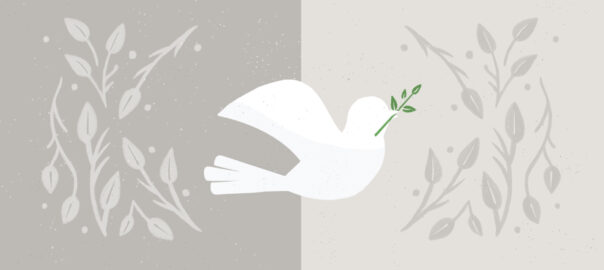A thoughtful friend who is a keen observer of public issues, wrote to me the other day and asked, “Charlie, what just happened in Virginia? Many of my friends are calling it a racist backlash. Other are saying the parents are finally being heard. What do you think?”
As always, the issues of any election are complex and people do not fit into tidy cultural and/or ideological boxes assigned by the pundits. This election does demonstrate that a sentence or two can change history! If Governor McAuliffe had invited frustrated parents to a roundtable discussion and expressed empathy, he might have won the election. Instead, he casually opined that the parents should not tell the school board or teachers what to teach. This was not well-received by many in his own party (even if it was exploited by the other side beyond McAuliffe’s intent).
The conflicts of Virginia are found across the nation as parents are deeply agitated about the content and overall quality of the education their children are receiving. This was amplified by the effects of COVID and parental exposure to heretofore unknown topics. The school boards and administrators of many schools are proving themselves unwilling to listen deeply and engage in dialogue, resorting to narrow rules for feedback and even obscuring controversial content, as well as budget allocations. Parents feel condescended to, belittled, and libeled. Disagreeing with some facets of how racial issues are presented is not racism; however, that is the conclusion of some commentators and teachers’ union leaders. Concerns about sex education and the age-appropriate materials is met with derision by educators, some of whom see no problem with telling students to keep secrets from their families.
A bit of historical and social perspective helps as we aim for a better way forward. Three issues are converging in these conflicts: 1) The public schools are challenged with bringing education and support services to children coming from very difficult homes: 2) Professionals take offense at non-experts telling them what to do; 3) We have a deep cultural divide over the scope of education, from broad, ideological agendas to more narrow subject foci.
In defense of most schools and teachers, education can be challenging, especially in under-resourced communities. Kids come to school with emotional and physical needs that make learning hard on a good day. One kindergarten teacher I spoke with summarized her day this way: “I have 20 students. Only a few have two-parent households and come to school with clean bodies and clothes and ready to learn. I think I taught about 8-10 and kept the others from hurting themselves and others.” Social service case workers affirm this picture as they try to help families and manage the consequences of abuse, addiction, divorce and single-parent homes. Before we berate educators, it is right to pause and realize that we must renew the importance of parents serving their children and creating the conditions for flourishing.
Issues 2 and 3 are part of a century-long tension between parental authority and the responsibility and the influence of experts. While issue #1 unveils the brokenness of many families, educators have long been as the forefront of questioning family authority and influence and desiring that the state be the primary leader in nurturing children. A few years ago, a news commentator, responding to similar parental concerns, blurted out, “Your children do not belong to you…they belong to the collect…I mean the community!” She meant to say, “collective” in good Marxist fashion, but caught herself and said “community.” While we all affirm that community is vital, parents are the vital foundation and any diminishment of their influence (except for abuse) is overreach by the state.
What is the way forward? First, children must be welcome as gifts from God and parents must embrace the unselfishness and sacrifice of nurturing them to maturity. Parents are the first teachers. Issues of faith, morality, and key values rests primarily in the home, secondarily in the faith community, and only thirdly with public institutions. Parents must be heard and their children must not be subject to indoctrination or information beyond their years.
Second, the educational establishment must narrow its focus to education, especially the important knowledge and skills for functioning in a competitive world. Except for enforcing common values of civility, diligence, and mutual respect, teachers must teach their subjects well, properly exposing students to many historical narratives and cultural expressions, while ensuring that basic liberal arts and sciences are central. It is time for a school year to increase in days, not decrease. The USA is way behind much of the developed world in the amount and quality of schooling that our K-12 children receive.
Third, all curricular and co-curricular content must be public and subject to scrutiny. NO secrets, full transparency, and open debate must be the norm. Teachers are trained to help children that might be abusive victims, and we do need a safety net for these situations. It is time to end the secrecy, especially about religion, sexuality, and politics. These realms belong to the family first, then the local community agencies, and then, informationally, to the educational establishment.
Fourth, the educational landscape must be a free market, with public, charter, private, and homeschooling networks cooperating and competing. Right now, more than a million underserved families are waiting for places in charter and private schools because of the poor quality of their local schools. Yes, we need more resources for the poorer neighborhoods – and much more accountability for how they are managed! Costs per pupil are not the only indicator of success.
We can have civil debate and explore better ways for education. Courage, humility, and a willingness to share influence and power are the keys to a better future for our children.





